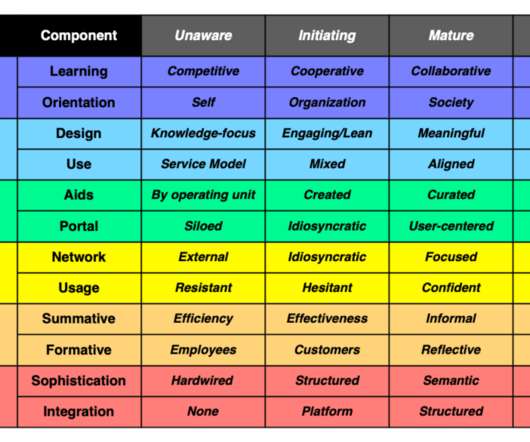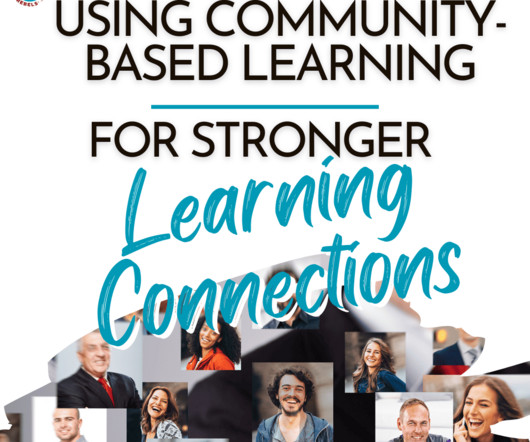Performance Ecosystem Maturity Model
Clark Quinn
DECEMBER 22, 2020
And I had developed a Performance Ecosystem Maturity Model as part of Revolutionize Learning & Development, but…I hadn’t presented it. Recently, someone asked about an organizational learning maturity model. The first area is culture. How we’re learning, and what our orientation is.










































Let's personalize your content